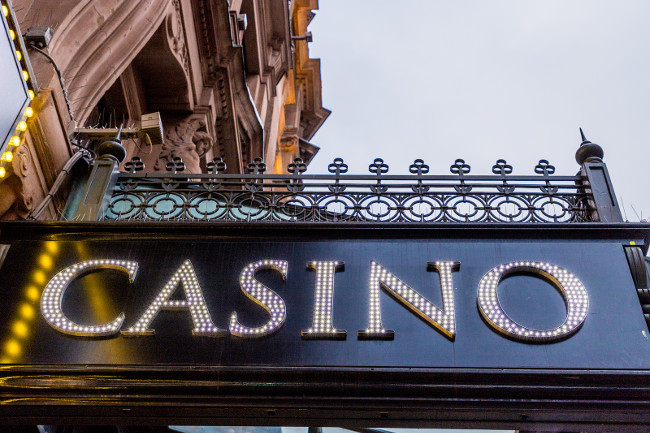
Casino games have long been a significant aspect of human culture, providing not just entertainment but a captivating reflection of our aspirations, wishes, and anxieties. From the rotating wheels of a slot machine to the strategic gameplay of poker, these games encapsulate a variety of human feelings and events. At their core, casino games are more than a chance to win money; they are a microcosm of life itself, where risk versus reward merge and fate can change in an moment.
As players assemble around tables or sit in front of vibrantly illuminated machines, they take part in a ceremony that transcends mere betting. These games echo our instinctive desires for relationships, thrill, and the search for fortune. They also unveil deeper truths about human psychology, such as our relationship with chance and the thrill of uncertainty. In exploring casino games, we uncover not only the mechanics of play but also the rich tapestry of the human experience, showcasing our woven narratives of aspiration and reality.
The Mind Behind Gambling
Wagering is deeply rooted in human psychology, appealing to various emotions and wants. The excitement of risk-taking is a fundamental aspect that draws players in, whether the thrill of spinning a roulette wheel or the anticipation of drawing a winning card in poker. This adrenaline is frequently likened to other forms of excitement, as the uncertainty of outcomes triggers a unique psychological response. Players often become captivated by the possibility of winning big, leading to an almost magnetic draw toward gambling games.
Another, a crucial component of the psychology behind gambling is the concept of hope and ambition. Participants often nourish dreams of financial freedom and the opulent lifestyle that can follow winning. This optimism fuels their ongoing participation in gambling, as it provides a sense of meaning and the conviction that a life-changing win could be just one bet away. The story of beating the odds and finding success resonates with many, strengthening their commitment to play and involve themselves with these games.
Lastly, social dynamics play a significant role in gambling psychology. Gambling venues are designed to promote social interaction, where gamblers gather to share the experience of wins and losses. This shared aspect not only enhances enjoyment but also influences behavior, as individuals often imitate the actions of others around them. The collective approval found in shared excitement can magnify the emotional experience, making casino games a mirror of not just personal desires but also collective engagement within the gambling community.
### Risk and Reward: A Double-Edged Sword
Casino games embody the delicate balance between risk and reward that resonates deeply with human nature. The excitement of placing a bet is often accompanied by a jolt of energy, as participants are confronted with the chance of striking it rich, yet conscious of the potential to suffer losses. This dual experience reflects a fundamental aspect of life: the choices we make often come with inherent risks, and the pursuit of reward can compel us to make risky moves we might not typically consider. In this way, gambling activities echo real-world choices, enticing gamblers to risk not just their money, but also their hopes.
The allure of grand jackpots and winnings fuels a sense of optimism, motivating players to envision a brighter future that could manifest from a single victorious spin of the wheel or flip of a card. This hope can drive individuals to engage in more daring actions, urging them to extend their limits in search of financial gain. However, just as in life, the consequences of these risks can lead to both victory and loss. The narratives of both jackpot winners and those who have lost everything at the casino demonstrate the random nature of chance and its significant impact on our lives. Ga179
Ultimately, the interaction of engaging with gambling activities serves as a strong reminder of the human condition. Every game played is filled with the tension of uncertainty, as players weigh the gains against the dangers. This balance not only highlights the thrill that comes with betting but also reveals the vulnerabilities that come with the longing for more. As we explore the challenges of choice and results in both the casino and in life, we find that the pursuit of risk and reward shapes our sense of self and lives in deep ways.
Community and Loneliness in Gambling Environment
Casino culture is a unique mix of social engagement and personal endeavor, reflecting the dualities of human experience. Players often come together around games, experiencing in the thrill of the action, celebrating wins, and sympathizing over losses. This social aspect is vital, as it fosters a sense of belonging and camaraderie among varied groups of individuals. Regular visitors to casinos may build friendships and establish routines, turning the casino into a second home where they experience linked to a larger community of gamblers.
However, the allure of gambling games can also lead to loneliness. As individuals become immersed in the thrill of playing, they may isolate from personal connections or fail to interact with the world outside the casino. For some, the pursuit of a windfall can overshadow real connections, leading to isolation. The experience of being among others yet feeling solitary is not rare, as the focus shifts from collective fun to the private stakes of each player’s journey.
This interaction of community and isolation creates a vivid tapestry that defines casino atmosphere. It showcases the complexity of human interactions, where joy and sorrow coexist. Gambling venues serve as both a refuge for social engagement and a platform for individual challenges, illustrating how intimately entwined our yearning for connection and the personal quest for wealth can be. In navigating this environment, gamblers confront their own stories—seeking both the rush of the game and the companionship of fellow gamblers, eventually mirroring the broader spectrum of individual experience.



